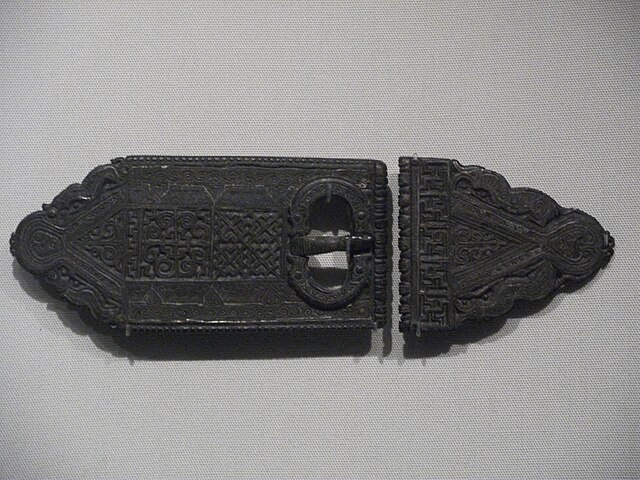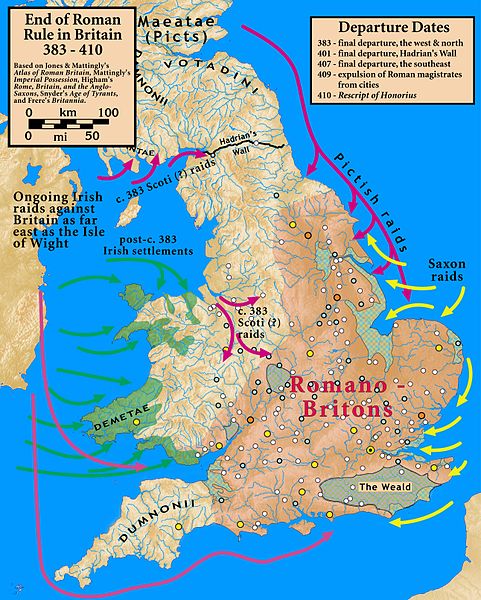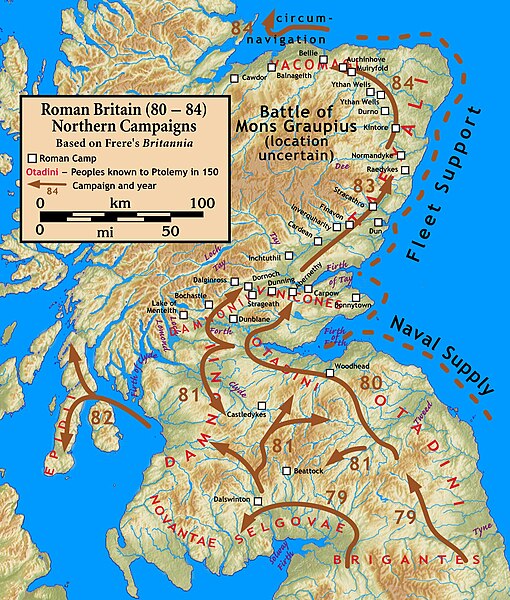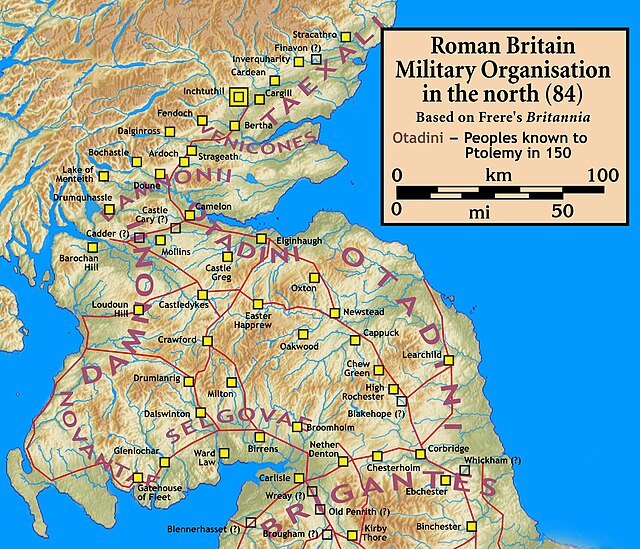End of Roman rule in Britain
The end of Roman rule in Britain was the transition from Roman Britain to post-Roman Britain. Roman rule ended in different parts of Britain at different times, and under different circumstances. In 383, the usurper Magnus Maximus withdrew troops from northern and western Britain, probably leaving local warlords in charge. In 407, usurper Constantine III took the remaining mobile Roman soldiers to Gaul in response to the crossing of the Rhine in late 406, leaving the island a victim of barbarian attacks. Around 410, the Romano-British expelled the Roman magistrates from Britain. Roman Emperor Honorius replied to a request for assistance with the Rescript of Honorius, telling the Roman cities to see to their own defence, a tacit acceptance of temporary British self-government. Honorius was fighting a large-scale war in Italy against the Visigoths under their leader Alaric, with Rome itself under siege. No forces could be spared to protect distant Britain. Though it is likely that Honorius expected to regain control over the provinces soon, by the mid-6th century Procopius recognised that Roman control of Britannia was entirely lost.

Gold coin of Constantine III
Romano-British or Anglo-Saxon belt fittings in the Quoit Brooch Style from the Mucking Anglo-Saxon cemetery, early 5th century, using a mainly Roman style for very early Anglo-Saxon clients
Image: End.of.Roman.rule.in.Britain.383.410
Roman Britain was the territory that became the Roman province of Britannia after the Roman conquest of Britain, consisting of a large part of the island of Great Britain. The occupation lasted from AD 43 to AD 410.
Conquests under Aulus Plautius, focused on the commercially valuable southeast of Britain
Roman campaigns 43–60
Agricola's campaigns
In 84 AD







